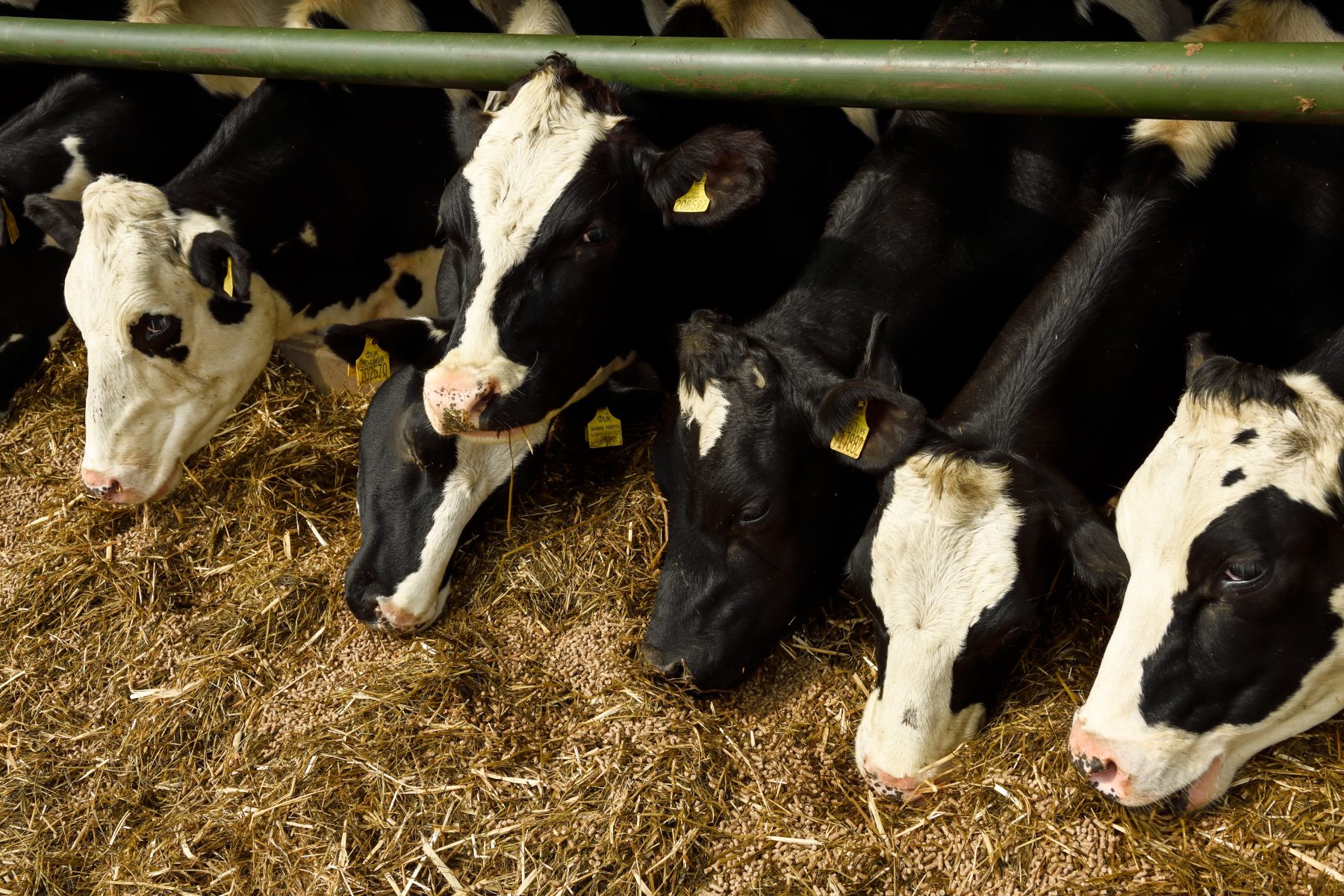A look into Meadow’s sustainable dairy farming

Meadow’s ambition is to lead the dairy industry on sustainability and it’s at the heart of everything we do.
As part of this, we’re striving to follow our mission statement of “making sustainable ingredients easy for our customers”. This means working in collaboration with our supplying farmers to minimise our carbon footprint.
This blog explores the sustainable farming methods we use for dairy farming here at Meadow.
IT STARTS WITH OUR ANIMALS
It’s crucial to us that our quality dairy products come from milk that’s produced by healthy and, of course, happy cows. It’s indisputable that the quality of any dairy product is intrinsically linked to the welfare of the animal and that’s why we would never compromise on this.
It’s also not surprising that a healthy herd is usually an efficient one, that’s why, it has a big impact on a farms overall carbon footprint.
So, as part of our Animal Health & Welfare Policy we work closely with our dedicated supply group of farmers to help them to continually improve farm facilities and welfare provision for all cattle under their care.
We don’t compromise, every one of our farms in our supplier pool must be members of the Red Tractor Dairy Assurance Scheme, which recognises responsible farm practices and safe production of dairy products.
sustainable farm scheme
We also recently introduced a new Sustainable Farm Scheme as part of our drive to make sustainability ubiquitous in all aspects of our business, from suppliers to production
The scheme will help to assure consumers that the dairy ingredients in the foods they enjoy have been responsibly produced, with minimal impact on the environment.
The scheme has been developed to recognise and reward good farming practice, such as protecting the soil and sourcing sustainable feed.
WHAT ARE MEADOW’S SUSTAINABILITY PRIORITIES?
carbon reduction
When it comes to looking at how we can operate in an even more sustainable way, our most urgent priority is looking at reducing the carbon footprint of dairy production and therefore the milk we use.
EFFECTIVE GOVERNANCE
One of the most important parts of sustainable dairy farming is having effective governance initiatives that safeguard our core values and ensures that we operate in a responsible way.
From the top down, our initiatives uphold essential rights and safety legislation that ultimately help us to produce great products in a way that’s both environmentally and socially responsible.
This underpins our commitment to minimising the environmental impact of dairy farming, whilst ensuring the highest animal welfare.
why does sustainability matter?
Meadow is leading the industry on sustainability and its now at the core of our business strategy.
Operating in a way that is both efficient and sustainable are the cornerstones of our business and this is reflected in our core brand values:
We do the right thing. Meadow is committed to operating in a socially, environmentally, and economically responsible way and doing the right thing as corporate citizens.
Our customers are our priority. Like us, our customers are committed to operating with a sustainable future in mind and we’re working together to help achieve it.
We comply with UK legislation on sustainability and by working with our customers to do the right thing, we can contribute to and benefit from a reduction in CO2 emissions and improved business performance.
We are determined to meet our ambitious goals on carbon, environment, supply chain, social and governance and with sustainability is at the heart of what we do, we believe we can achieve them.
This is reflected in our CEO Raj Tugnait’s belief that “now is the time to press the accelerator on further sustainable growth” at Meadow.
If you would like to discover more about our business and our pledges to be a responsible company, you can follow us on Twitter and LinkedIn.
